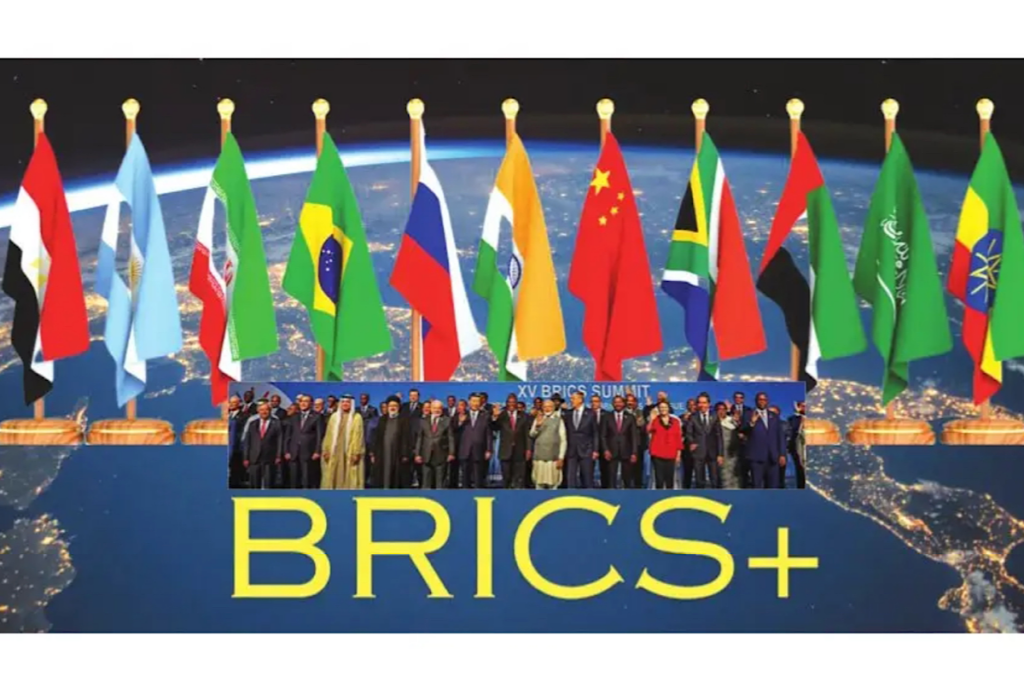Many Western geopolitical sages have made similar statements. Henry Kissinger wrote in his book World Order that the world is in a parlous condition verging on international anarchy. Guardian columnist Siman Tisdall explains how the US is now changing from a global power to “smart power” using soft power tools, economic levers, technological advantage, intelligence gathering and not brute military force and full-scale invasions. Today, frontier technologies like artificial intelligence, robotics, quantum computing, 6G telecommunications, genetic engineering and nanotechnology have become the new building blocks of a competitive multipolar order.
The Global South is no more in the age of innocence. Thanks to the rise of BRICS, the structure of global power is no longer a pyramid. This burgeoning club has acquired a formidable clout and now we live in a new period of competitive multilateralism. Europe’s “Belle Epoque” is long gone as Keynes described it as “projects and politics of militarism, of racial and cultural rivalries and restructured exclusion.” The world order is now a ‘postWestern world”. But both the Western world and the Global South face new challenges. Global politics has entered a transformative paradigm shift.
It is a new phase of “techno-geopolitical uncertainty” as geopolitics and geoeconomics have made way for geotechnology. It would not be an exaggeration to say that global trends and phenomena are transmuting into a delicate global economic, political and technological turbulence. The post-Berlin Wall order is over. One can discern the gradual end of Scandinavian neutrality and equidistance. The expansion of the European Union and NATO defy logic. The end of Europe by James Kirchick says it all. He argues that Europe is on a razor’s edge. Its key pillars have begun to teeter.
The US is increasingly getting unmoored from Europe. BRICS has emerged as a powerful geopolitical entity thanks to the rise of the Global South. It is flexing economic and political muscles that no other platforms or groupings of the developing world ever did. It has momentum on its side. It has surpassed the G7 and accounts for 32 per cent of global GDP in PPP terms. The dynamism of the economy is in the Global South. When a club has a waiting list for getting in, it is hard to characterise it as irrelevant. BRICS is an economic elephant in the room. It has become a feel-good factor and a reliable pillar of the emerging global order.
BRICS has another advantage. To use the musical allegory, BRICS are like soft Beatles whose members are free to release solo albums. But it needs to do much more. BRICS requires new imagination. It needs new paradigms, tools and strategies. It certainly needs a new cooperation paradigm. The old matrix of donor-recipient relations is no more relevant nor is it desirable. There is no one donor who is not receiving and there is no one recipient who is not giving. BRICS’ growing profile has provoked bewilderment, jealousy, bouts of paranoia and muddled thinking in the West. BRICS perspectives and agendas, many in the West believe, seek to tear up its carefully crafted global rulebook. BRICS has now become what an analyst calls “a staple of foreign policy jargons” in the West.
And this grouping appears in Western governments’ “white papers, think tank reports, newspaper columns and social media posts.” But BRICS faces its own set of challenges. Competing visions and agendas are being pursued by old and new BRICS members. BRICS’ challenge is how to become an anchor of global politics. In the age of poly-crisis, BRICS must offer a vision of what is needed and what is possible. It must lay out its detailed agenda for change and provide a blueprint of a just, sustainable and compassionate world. It must work to restructure the rules of commerce to create an alternative economic model beyond growth that nurtures social bonding and responsibility. BRICS needs an infrastructure of new ideas and incentives. Footloose capitalism has dealt a fatal blow not only to democracy but also to the market.
Hence, this platform must promote its vision of what David C Corten calls “a living economy for a living Earth”. Equally important is not to ignore the idea of international solidarity. Big is not always beautiful. Mindless expansion is counterproductive. BRICS Plus has been described as ‘a new world order of strategic multi-alignment”. No one knows yet what perspectives the new members have on issues articulated by BRICS. BRICS’ vision for a new global governance system should not be a clone of the World Bank or IMF. There is a need to steer away from the paradigm of economic growth that prioritizes GDP. Growth is not cherry-picking. It is inclusion, distribution and sustainability. There are still loose bricks in the BRICS wall. It will have to create a common vision.
It is still far from being at the cutting edge of global politics. BRICS would need to have clear positions on climate crisis, disaster management, strategic technologies, supply chain resilience, health security and counter-terrorism. It must take a position on the future of work, the fraying of social contract among others. The G20 under the Brazilian presidency is seriously contemplating a global minimum tax on the world’s 3,300 billionaires. BRICS too must support this initiative. The West’s narratives and magic of ideas have lost their marbles. BRICS needs better ideas and stories. It must promote a paradigm that privileges equality of outcome, not merely equality as a right and a theory. But if BRICS has to become the world’s collective waking dream, it would need a new compass to walk the path towards a future. Remakes, reboots, spinoffs and imitations leave little space for new ideas both in cinema and international politics.
__________________________________________________
Ash Narain Roy is director of the Institute of Social Sciences, Delhi.
Source: www.thestatesman.com
